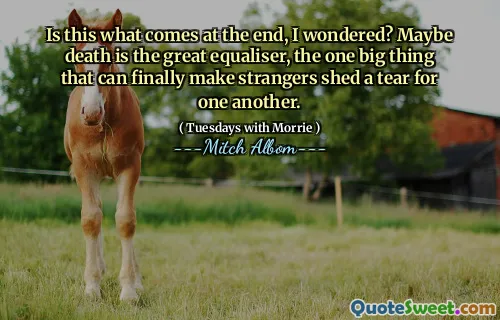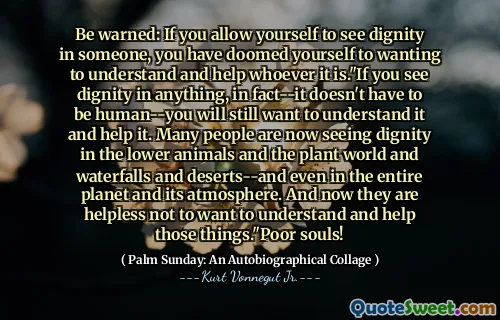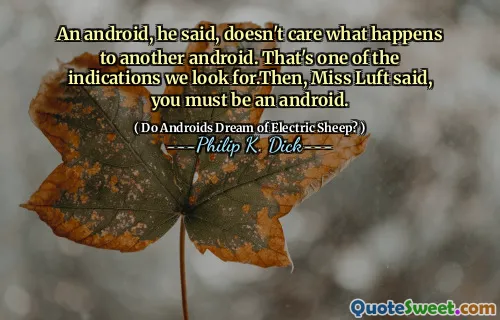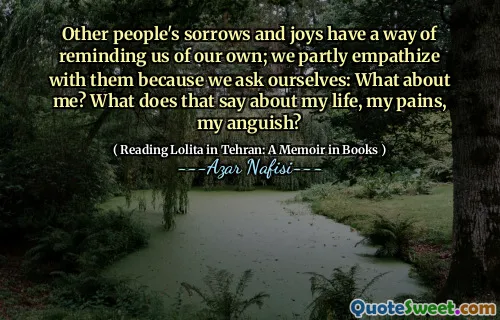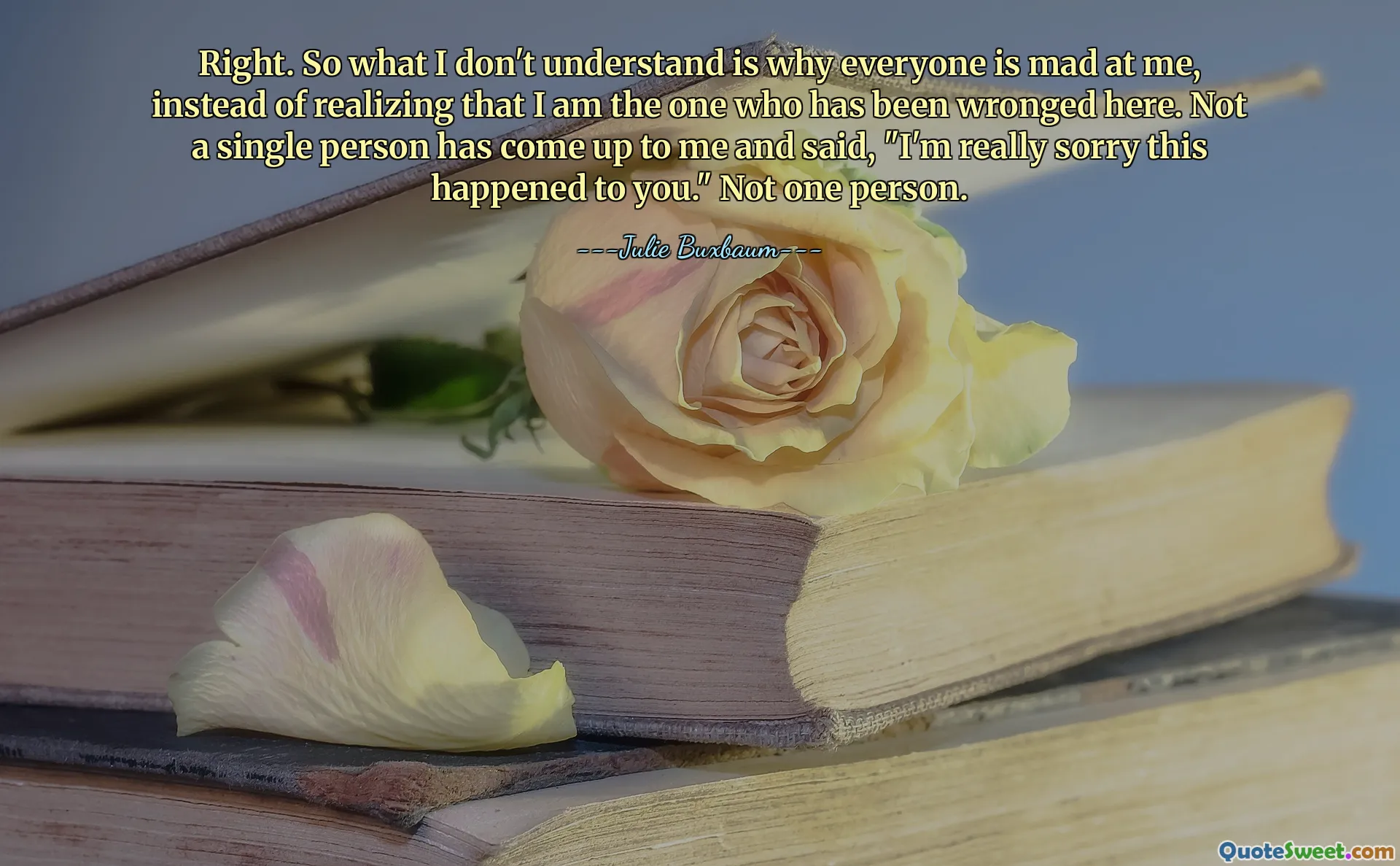
Right. So what I don't understand is why everyone is mad at me, instead of realizing that I am the one who has been wronged here. Not a single person has come up to me and said, "I'm really sorry this happened to you." Not one person.
This quote captures a poignant moment of frustration and feeling of betrayal. The speaker seems to be grappling with the pain of being misunderstood or unfairly judged by those around them. Their expectation that others would recognize their suffering and acknowledge it through apology reflects a desire for empathy and validation. It highlights common human experiences where feelings of being wronged go unnoticed or unacknowledged, leading to feelings of isolation and disappointment. The speaker’s words also reveal how important it is for individuals to feel seen and heard, especially during vulnerable moments. When those around us fail to show understanding, it can deepen our sense of injustice and loneliness. This sentiment resonates because it underscores the universal need for compassion and acknowledgment from others when we've been hurt. It prompts reflection on how often people crave recognition for their suffering and how difficult it can be when that recognition is absent. Additionally, the quote emphasizes the significance of empathy not just in personal relationships but also in broader social interactions. Recognizing others’ pain and offering genuine apologies can foster healing and restore trust. Ultimately, this quote reminds us of the importance of compassion and the transformative power of acknowledgment in human connection—a healing stimulus that can mend wounds both emotional and social.






